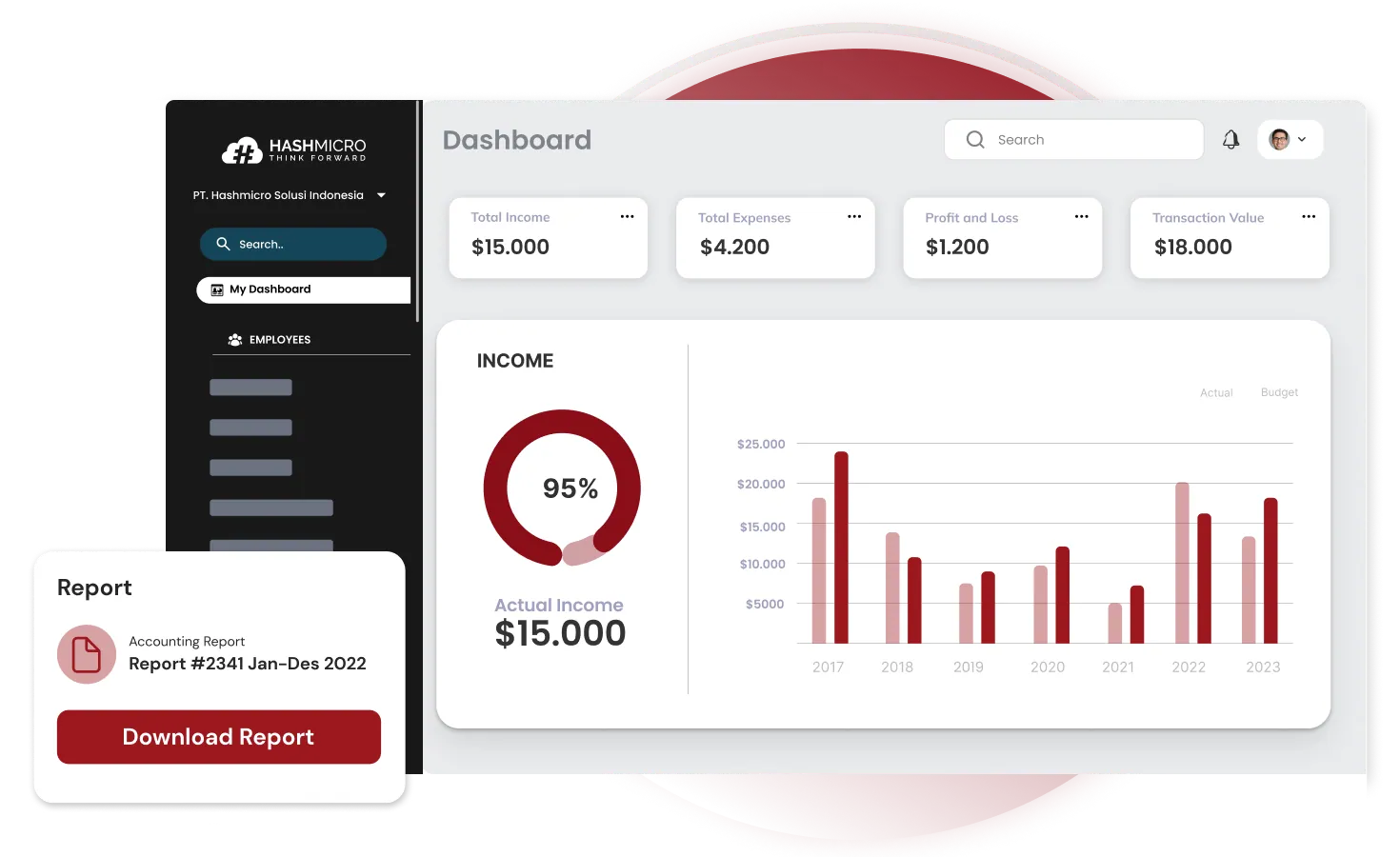Are you confused by the terms “fiscal year” and “financial year”? Understanding how they impact your business operations is crucial, yet many businesses struggle to grasp the full meaning of these terms.
A fiscal year is 12 months organizations use for accounting purposes, allowing businesses to prepare financial statements. Depending on the business’s choice, it can differ from the calendar year and might end at any point.
In this article, we’ll explore what is a fiscal year, how it works in practice, the difference between fiscal and calendar years, and how HashMicro can support your business with accounting solutions.
Table of Content:
Table of Content
Key Takeaways
|
What is a Fiscal Year?
A fiscal year is a financial period businesses use for accounting and taxation purposes. It typically spans 12 months, but the start and end dates vary.
If needed, businesses can implement a change of financial year end to adjust their accounting period for operational reasons.
The fiscal year can begin and end on any date, not necessarily aligned with the calendar year. For example, it could run from April 1 to March 31. This allows businesses to tailor their reporting period for more accurate financial planning.
While it may seem technical, understanding the fiscal year meaning is crucial for accurate tax filings, financial reporting, and budgeting. Businesses should align their fiscal year based on operational needs.
How Does a Fiscal Year Work in Practice?
When implementing a fiscal year, businesses must decide its start and end dates. This decision can impact tax deadlines, reporting, and financial projections. Below are key points to consider:
- Start and End Dates: A fiscal year can start on any date but must run for 12 consecutive months. It’s essential for tax filing and budgeting accuracy.
- Financial Reporting: Companies track revenue and expenses within the fiscal year for their financial statements, ensuring consistency between internal and external reporting.
- Tax Obligations: In some regions, businesses must file taxes based on their fiscal year. This affects when taxes are due and what deductions can be applied.
- Fiscal Year Adjustments: Businesses can change their fiscal year if necessary. However, they must follow regulations and notify the authorities, particularly in regions like Singapore.
Examples of Fiscal Year
Many organizations, including government agencies and non-profits, use specific financial periods to manage their finances. For example, the U.S. government’s financial year runs from October 1 to September 30.
Another example is the reporting period used by companies like Microsoft, which runs from July 1 to June 30. This helps them avoid the end-of-year rush when reporting their earnings and tax obligations.
In Singapore, businesses may choose their financial year-end based on their operational cycle. Understanding these requirements helps ensure compliance with local tax regulations and financial reporting standards.
Fiscal Year vs Calendar Year: What’s the Difference?
Understanding the distinction between fiscal year vs calendar year is crucial for businesses. While both represent 12 months, they have different implications.
| Feature | Fiscal Year | Calender Year |
| Definition | 12 months not tied to the calendar | 12 months from January 1 to December 31 |
| Flexibility | Can start and end on any date | Fixed from January 1 to December 31 |
| Business Use | Used for financial reporting and tax filing | Primarily used for personal and government purposes |
The calendar year is straightforward and fixed, while the fiscal year offers flexibility for businesses to choose a period that suits their operational cycle. This is a significant factor for tax planning and financial analysis.
For businesses looking to optimize their financial reporting, understanding the fiscal year vs calendar year differences is essential for making informed decisions about when to prepare financial statements.
On the other hand, what is the difference between a fiscal year vs a financial year?
Although the terms fiscal year and financial year are often used interchangeably, their meanings can vary by region. A fiscal year is 12 months organisations use for budgeting and accounting, which can start in any month.
In contrast, a financial year is typically used in countries like India or Australia for tax purposes, and it usually follows a set period, such as April 1 to March 31 in India. The main difference lies in regional usage and context.
What IRAS Says About Fiscal Year Requirements
In Singapore, the Inland Revenue Authority of Singapore (IRAS) requires businesses to adhere to specific fiscal year rules. Here’s what you need to know:
- Fiscal Year End Selection: Businesses must select a fiscal year end and report to IRAS. The end date should be consistent with their business cycle and accounting practices.
- Tax Filing Compliance: Businesses must file taxes based on their fiscal year. IRAS uses the financial year end to determine the tax filings and payments deadlines.
- Changes in Fiscal Year: Businesses can apply to change their fiscal year end. However, IRAS approval is required, and this change should be reported promptly.
- Financial Statements: Companies must submit annual financial statements based on their fiscal year end. Accurate records are crucial for IRAS assessments.
How HashMicro Can Help Your Business with Accounting Solutions
HashMicro offers advanced accounting software to simplify financial management. With tools designed for precise financial reporting, businesses can easily track revenues and expenses, ensuring accurate fiscal year-end statements.
Their cloud-based system allows businesses to customize their fiscal year settings, automate tax calculations, and meet local regulations. HashMicro’s accounting software streamlines your business’s financial operations.
Features:
- Financial Dashboard: Monitor the financial health of your entire business, including income, cash flow, accounts receivable, accounts payable, and more.
- Cash Flow Forecasting: Accurately predict your income and expenses for a specific period.
- Fast Bank Reconciliation: Our accounting software automatically and securely imports all bank transactions.
- Accrual & Amortization: HashMicro’s accounting software reduces human error by automatically recording and calculating accruals and amortizations.
- Peppol e-Invoicing: HashMicro integrates with Singapore’s Peppol e-Invoicing network, ensuring standardized invoice exchanges between parties.
- Analytical Reporting: HashMicro’s accounting software quickly generates income statements, cash flow reports, balance sheets, changes in capital, and more.
Conclusion
The fiscal year is vital in managing your business’s financials, impacting everything from tax filings to budget planning. Understanding fiscal year requirements helps businesses maintain accurate records and meet regulatory expectations.
HashMicro Accounting Software can provide tailored accounting solutions that automate these processes, ensuring compliance and efficiency for your business.
Ready to optimize your business’s financial processes? Try HashMicro’s free demo and see how our accounting software can simplify your management.

FAQ
-
Why do businesses choose a fiscal year instead of the calendar year?
Businesses pick a fiscal year to align financial reporting with their operational cycles, optimizing budgeting and tax planning and avoiding calendar year-end rushes.
-
Can a company change its fiscal year?
Yes, companies can change their fiscal year end, but they need approval from authorities (like IRAS in Singapore) and must follow local regulations for tax filing.
-
What happens if a fiscal year does not align with the calendar year for tax filing?
Tax obligations are based on the fiscal year end, not the calendar year, so businesses must file taxes according to their specific fiscal period to remain compliant.





































